October 18, 2024 | 23:38 GMT +7
October 18, 2024 | 23:38 GMT +7
Hotline: 0913.378.918
October 18, 2024 | 23:38 GMT +7
Hotline: 0913.378.918
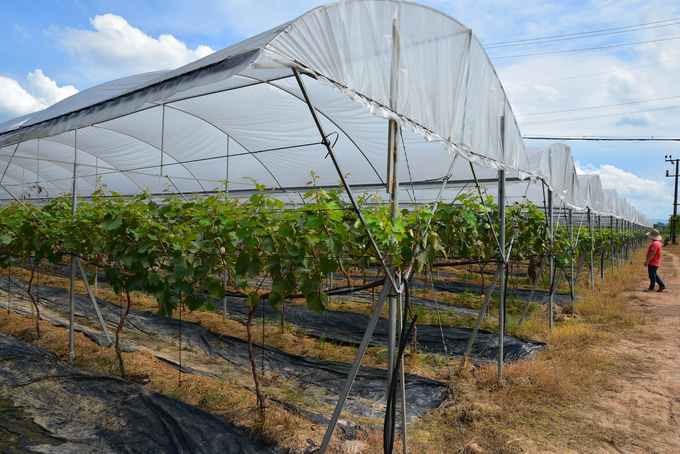
A high-tech vineyard in Hanoi. Photo: VAN.
Regarding the progress of digital transformation in the quality management and processing of agro-forestry-fishery products, various production and processing facilities are relying on standards such as HACCP and GMP to manage logistics, warehousing, preservation, and promote chain linkages and consumption. Additionally, they utilize e-commerce channels through social platforms such as Facebook, Zalo, and TikTok to connect directly with consumers. They also adopt quality monitoring technologies to track production conditions, thereby ensuring the quality control of agro-forestry-fishery products.
Regarding the progress of digital transformation in agricultural market development, farmers and businesses currently receive support to bring their products onto e-commerce platforms such as buudien.vn and voso.vn. As a result, the number of agricultural products on these platforms in 2024 increased by 30% compared to previous years. Agro-forestry-fishery production and trading businesses have also utilized digital marketing to promote their products and build brands, thereby enhancing recognition and attracting both domestic and international customers.
Hanoi City has also introduced several specialized databases to support the development of the digital economy, including databases for traceability of agro-forestry-fishery products; OCOP products; online food safety knowledge testing software for the agriculture, forestry, and fishery sectors; databases for crop production and plant protection, livestock and animal health services; databases for agricultural land management and use; and fisheries databases for business owners and stakeholders in the production and trading of agro-forestry-fishery products.
All agencies under the Hanoi Department of Agriculture and Rural Development have appointed contact points with administrative accounts on the iHanoi digital citizen platform, who will receive and resolve public and business complaints and inquiries in the area.
On the other hand, the Sub-Department of Quality, Processing, and Market Development has created a Zalo group focused on food safety in the agricultural sector. The group currently has nearly 700 members who represent agro-forestry-fishery production and trading facilities within the region. This group serves as a space for information exchange and interaction with management agencies, while also providing a platform for businesses and facilities to connect for production and product consumption.
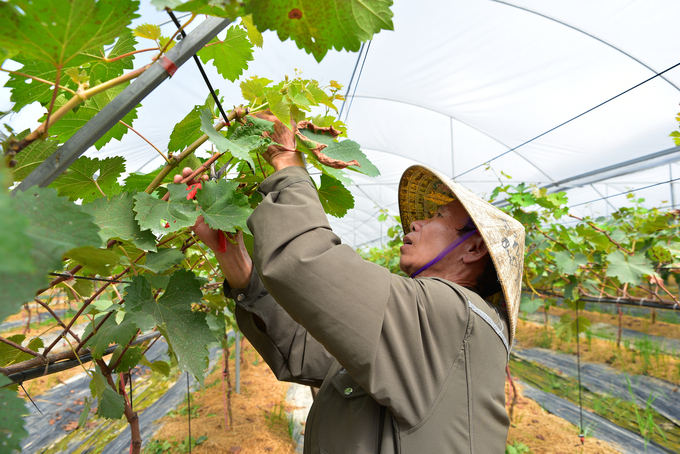
Workers tending to grapes in a greenhouse. Photo: VAN.
During a relatively short implementation timeframe, digital transformation in Hanoi's agricultural sector has fostered changes in awareness and actions among agencies, organizations, and individuals involved in the agro-forestry-fishery production and trading chains. Several software applications utilizing digital technology for data creation and service provision have produced highly effective results, such as Hanoi’s agricultural, forestry, and fishery product traceability system and the online software for food safety knowledge testing and assessment for business owners and other stakeholders in food and agricultural production.
However, digital transformation in agriculture is a new field that lack detailed standards, regulations, and guidelines. As a result, the process has resulted in relative confusion during the implementation process. The application of digital transformation technologies in crop and livestock production and processing, and the consumption of agro-forestry-fishery products—such as IoT and sensors to optimize production activities—remains limited. Human resources and investment capital for digital transformation are also insufficient, both of which can only meet the needs of select stages in the supply chain.
The introduction of agricultural products to e-commerce platforms enables farmers and businesses to easily reach consumers in various regions, thereby reducing dependence on traditional markets. The application of automation and digital technology in the processing of agro-forestry-fishery products helps businesses increase productivity, reduce labor costs, and ensure food safety, thereby enhancing their level of competitiveness.
Agriculture is one of eight sectors prioritized for digital transformation in Vietnam. By 2025, Vietnam aims to develop and update 80% of its agricultural data on a big data platform, with contributions from organizations, individuals, and communities.
The Center for Digital Transformation and Agricultural Statistics held a conference on digital transformation with the participation of 24 provinces from the Mekong Delta, Southern Region, and Central Highlands on October 3 in Ho Chi Minh City.
At the conference, participants engaged in in-depth discussions on current challenges and proposed solutions to expedite the digital transformation process in the agricultural sector. Consequently, these solutions will allow local agencies, authorities, industry associations, businesses, and cooperatives in the Mekong Delta and Southern regions to gain a better understanding of digital transformation in agriculture and promote digital technologies within the sector.
Translated by Nguyen Hai Long
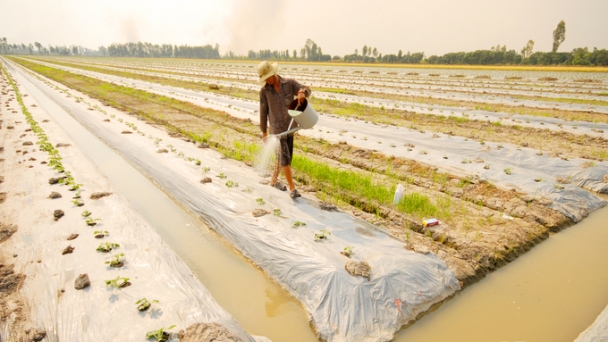
(VAN) Soil supports the growth of plants by providing essential nutrients and water. Consequently, healthy crop development requires a strong soil environment.
/2024/10/18/2900-2-122635_366.jpg)
(VAN) This is the main content mentioned at the meeting on vocational training for industrial marine farming, which was organized on October 17 in Hanoi by the Department of Fisheries.
/2024/10/18/3927-3-153522_909.jpg)
(VAN) Recently, the Women's Union of Khanh Hoa province organized a consultation workshop on functional zoning of Nha Trang Bay associated with sustainable livelihood development for Bich Dam.
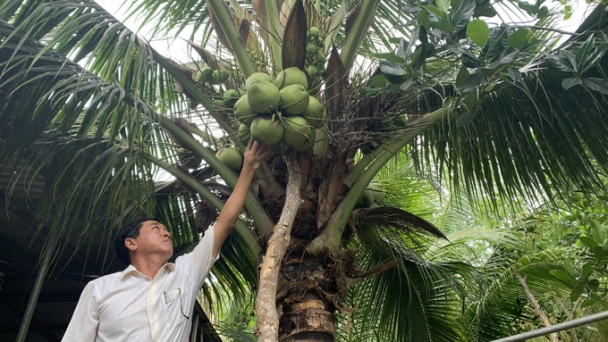
(VAN) Tra Vinh aims to have 6,000 hectares of certified organic coconut production area by 2025, with a focus on the Macapunoo cultivar to access the Chinese market.
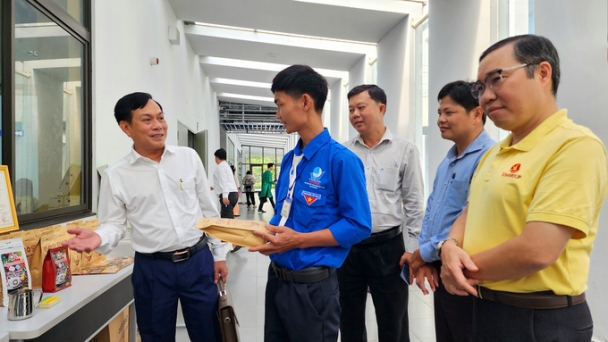
(VAN) Cooperatives are entitled to a 1 billion VND interest-free loan, along with capacity-building training, to foster economic development and sustainable poverty reduction in partnership with farmers.
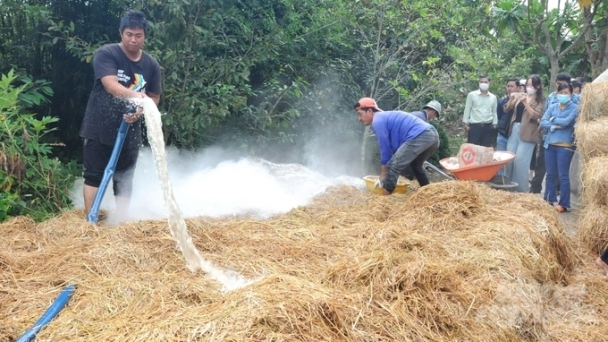
(VAN) Hundreds of farmers have been trained in managing and processing straw for straw mushroom production, compost production, and developing a circular economy from the rice value chain.